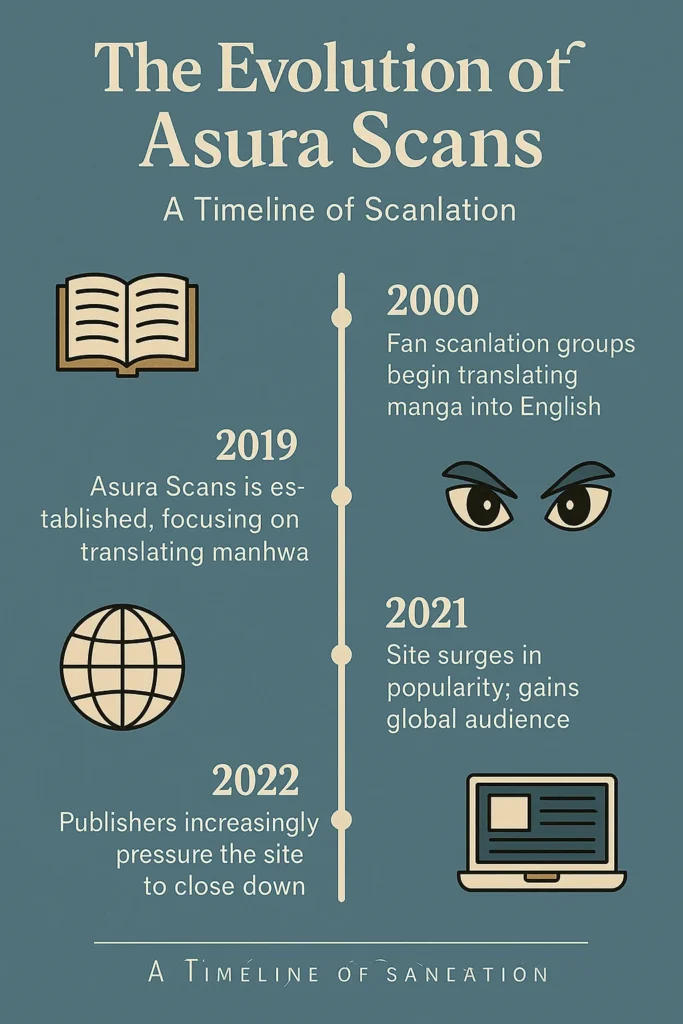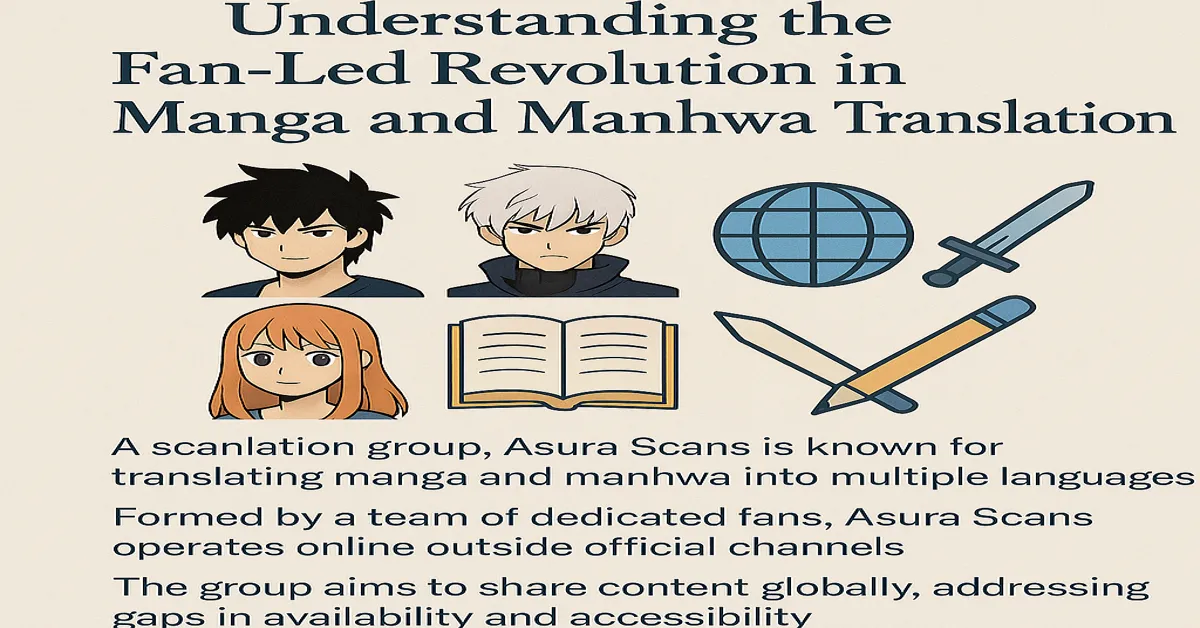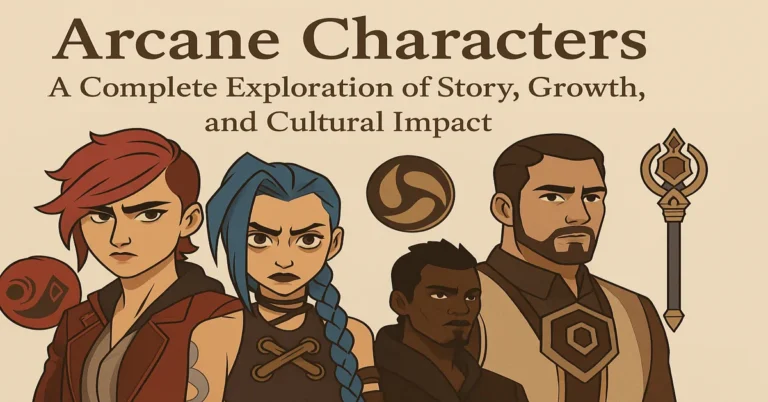Asura Scans: Understanding the Fan-Led Revolution in Manga and Manhwa Translation
In an era where globalization has collapsed distances and cultures converge at the tap of a screen, the worlds of manga and manhwa are expanding faster than ever. Central to this phenomenon is Asura Scans, a fan-led translation group that has reshaped how non-native audiences experience Asian comics.
Behind the casual swipe of a webtoon panel lies a complex network of passion, skill, legality, and shifting cultural currents. Asura Scans isn’t just a name at the bottom of a comic page—it’s the face of a larger movement. A movement that, while grassroots and often controversial, is fundamentally changing the relationship between creators and consumers worldwide.
This article dives deeply into the intricate world of Asura Scans, examining its origins, its role today, and the broader future it hints at for fan-driven media.

What Is Asura Scans?
Asura Scans is a volunteer-driven group specializing in translating Korean manhwa (comics), Japanese manga, and Chinese manhua into English. Founded informally around the late 2010s, the group quickly became known for:
- Rapid releases of popular titles
- High-quality editing and typesetting
- Selective curation of action, fantasy, and martial arts series
Unlike official publishers like Viz Media or Webtoon Originals, Asura Scans operates unofficially. Their work exists in a legal gray area, treading the line between copyright infringement and cultural exchange.
And yet, their popularity is undeniable. A single series posted on Asura Scans can garner millions of pageviews—often outpacing official releases by months or even years.
The Rise of Fan Translation Groups
To understand Asura Scans, we must first appreciate the long, complex history of fan translation culture, often called “scanlation.”
Origins: Scanlations and Subcultures
The concept dates back to the 1990s, when anime fans began subtitling Japanese shows by hand. When manga’s global popularity exploded in the 2000s, dedicated fans began scanning physical manga volumes, translating them, editing the text into speech bubbles, and distributing them for free.
What started as a niche effort by a few passionate fans evolved into a full-fledged global community with:
- Dedicated websites
- Private servers
- Patreon-like support models (though controversial)
- Collaborations across continents
Asura Scans grew from this fertile ground: a fan collective, bonded by their love for storytelling.
What Makes Asura Scans Unique?
Not all scanlation groups are created equal. Asura Scans distinguished itself through several key practices:
1. Speed and Consistency
Many readers are willing to wait months for an official translation. Asura Scans drops chapters weekly—or even multiple times per week—on a predictable schedule.
2. High Production Quality
Their chapters are professionally typeset, cleaned, and proofread. Pages feel polished, not rushed.
3. Focused Genre Selection
Asura specializes in genres like:
- Fantasy
- Martial arts (Murim)
- Tower-climbing adventures
- Reincarnation epics
Titles such as Solo Leveling, The Beginning After the End, and Nano Machine gained massive traction partly because of their timely, slick releases through groups like Asura.
4. Community Engagement
Operating Discord servers, Telegram channels, and dedicated websites, Asura fosters an active fan community where readers, translators, editors, and donors interact fluidly.
The Ethics and Legal Dilemma of Scanlations
Despite the goodwill surrounding groups like Asura, serious legal and ethical issues arise.
Copyright Infringement
Strictly speaking, scanlations are unauthorized reproductions of copyrighted works. Many rights-holders in Korea, Japan, and China have objected vocally.
In 2020, publishers like Kodansha, Shueisha, and KADOKAWA launched joint efforts to crack down on major pirated manga sites. Websites hosting scanlations—sometimes including Asura Scans content—were targeted.
The Morality Debate
Fans often argue:
- They translate series not yet licensed officially.
- They build demand for series to receive official releases.
- They provide access where no legal option exists.
Critics counter:
- Scanlations divert revenue from original creators.
- They may dissuade companies from investing in official translations.
- Monetized fan sites (via ads or donations) profit off unpaid work.
Asura Scans itself has addressed these tensions, claiming they cease translation work on series once official English versions are available—a policy still debated among industry professionals.
The Cultural Impact of Asura Scans
Beyond legality, Asura Scans reflects broader, powerful shifts:
1. Globalization of Korean and Chinese Media
While manga dominated early Western fandoms, manhwa and manhua have stormed into the spotlight, thanks largely to groups like Asura Scans.
Terms like murim (martial world) and tropes like cultivation (spiritual leveling) are now common parlance among English-speaking fans.
2. Reader Empowerment
Readers no longer passively consume whatever big publishers decide to localize. They seek out titles themselves, share links, and form online clubs. Fan demand shapes the market, not the other way around.
3. Pushing Publishers to Adapt
The existence of Asura Scans creates pressure on official publishers to:
- License titles faster
- Improve digital accessibility
- Rethink global release strategies
Indeed, the rapid English release of Solo Leveling by official platforms is seen by many as a direct response to its viral unofficial success.
Inside the Asura Scans Community
Community is at the heart of Asura’s success.
Roles Within the Team:
- Translators: Fluent in the source language and English.
- Cleaners: Remove Japanese/Korean text and restore original artwork.
- Typesetters: Insert translated dialogue into speech bubbles.
- Proofreaders: Correct grammar, tone, and cultural inconsistencies.
Most volunteers are unpaid, fueled instead by passion—and the thrill of sharing beloved stories globally.
Support Systems:
- Donation-based support keeps servers and websites running.
- Community contests (e.g., fanart or meme creation) strengthen emotional ties.
- Private “early access” perks incentivize ongoing contributions.
The Business of Unofficial Translation: A Blurry Line
While Asura Scans positions itself as a volunteer-driven operation, the need to cover server costs, hosting, and workload pressures has led some scanlation groups toward semi-commercial models.
- Ad revenue from massive site traffic.
- Patreon-style donations granting early access.
- Merchandising (rarely)
This commercialization remains controversial. Purists argue that fan work should stay entirely non-monetized. Realists point out that maintaining massive infrastructures requires resources.
How Technology Changed Everything
Advances in technology amplified the rise of Asura Scans:
- High-resolution scanners made image capture easy.
- Translation software sped up initial drafts.
- Discord, Reddit, Telegram facilitated real-time global collaboration.
- Cloud hosting made websites resistant to takedowns.
Technology democratized not just access to content, but the ability to create communities that thrive across borders, languages, and legal systems.
Future of Fan Translation: Evolution or Extinction?
Asura Scans, and groups like it, now face an uncertain future:
Potential Threats
- Stronger legal enforcement from global publishing giants.
- Official simulpubs (simultaneous publishing worldwide) reducing demand for scanlations.
- Rise of AI-powered translation, potentially bypassing human scanlators.
Potential Evolutions
- Fan groups formalizing relationships with publishers (early-stage licensing partnerships).
- Hybrid models where fans act as beta-testers or first-draft translators for official releases.
- The creation of fan-certified legal platforms where readers can access early translations ethically.
Final Reflections: Why Asura Scans Matters
Whether one views them as heroes, rebels, or pirates, groups like Asura Scans cannot be dismissed lightly. They represent:
- A hunger for global stories.
- A desire for immediate, unfettered access.
- A worldwide community willing to work tirelessly for love of the medium.
Above all, Asura Scans shows that the borderless world fans dreamed of decades ago isn’t just possible—it’s already here.





